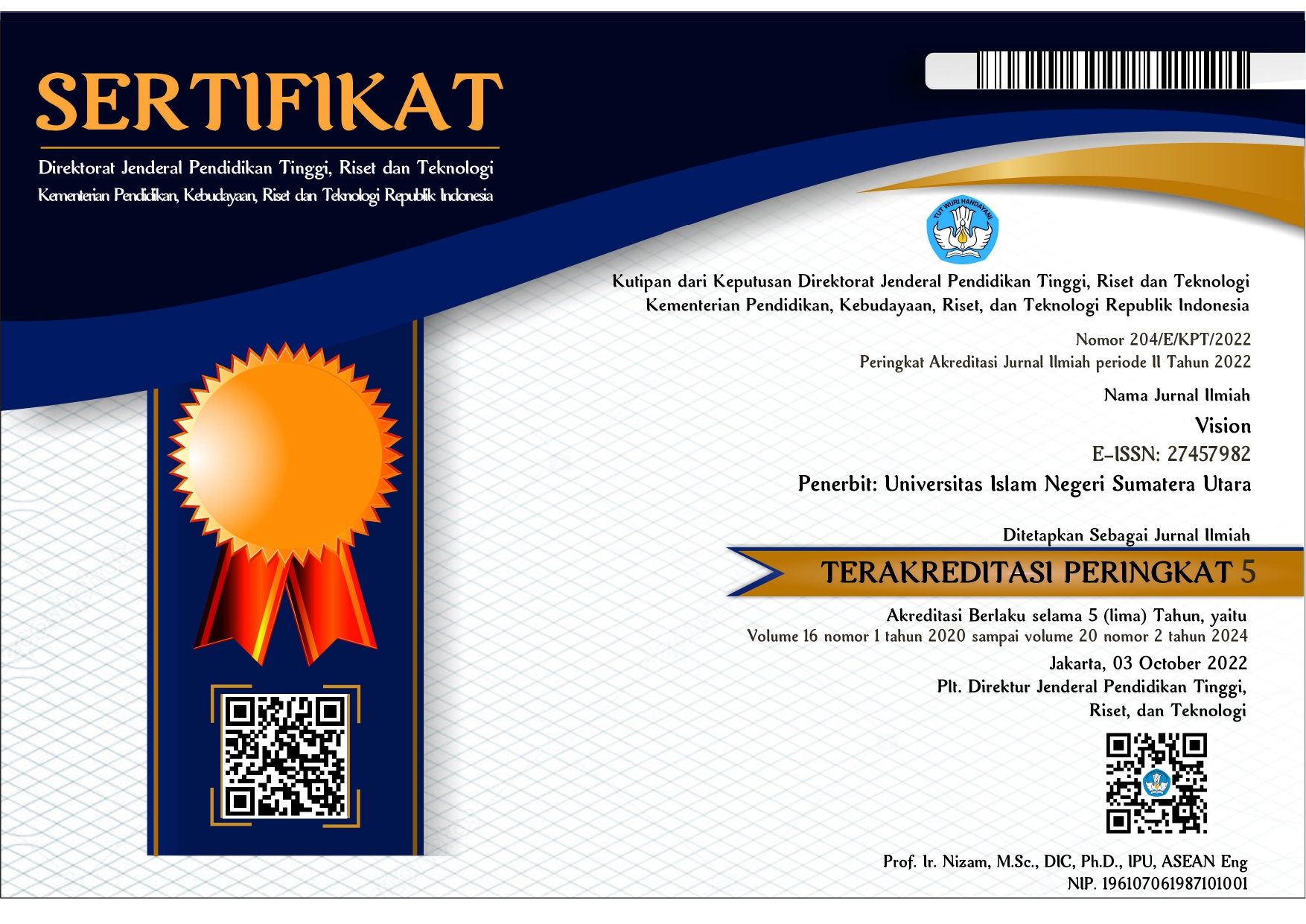AN ANALYSIS OF SONGS ON VIDEOS BY EARLY CHILDHOOD IN RETAINING VOCABULARY
Abstract
The core elements of a language are its vocabulary. Early childhood development is a critical time in a person's life that holds great significance for their future. There are problems that young learners face in learning language such as hard to get focused, easy to feel bored, struggle to remember or recall vocabulary items, and still need a stimulus to boost their motivation in the learning process. Learning vocabulary through songs and video making are one of the ways to solve those problems. This current study aims to examine if the songs help young learners in retaining English vocabulary and whether a video making is effective in engaging them in learning vocabulary. This current study used a content analysis design and the samples were 5 students who are 3-7 years old and enrolled English class at RainbowKids BPI. The results showed that songs help early childhood students to retain their English vocabulary. They had memorized all vocabulary on the songs taught to them. They were also able to use pronouns, auxiliary, verb, adjective, and even adverb of degree correctly. Making video is also effective in engaging young learners to improve their English vocabulary and speaking skills.
Keywords
Full Text:
PDFReferences
Astina, Nurhamdah, & Amzah. (2020). The Analysis of Teaching English Pronunciation at Young Learners. Inspiring: English Education Journal, 3(1). https://doi.org/10.35905/inspiring.v3i1.1991
Azar, B. S. (2002). Understanding and Using English Grammar (3rd ed.). Pearson Education.
Bengtsson, M. (2016). How to plan and perform a qualitative study using content analysis. NursingPlus Open, 2. https://doi.org/10.1016/j.npls.2016.01.001
Deni, R., & Fahriany, F. (2020). Teachers’ Perspective on Strategy for Teaching English Vocabulary to Young Learners. Vision: Journal for Language and Foreign Language Learning, 9(1). https://doi.org/10.21580/vjv9i14862
Fachraini, S., Bina, S., & Getsempena, B. (2017). USING ENGLISH SONGS TO INCREASE EARLY STUDENTS’ VOCABULARY. In Getsempena English Education Journal (GEEJ (Vol. 4, Issue 2).
Fahriany, F., Fitriani, F., Farhan, L., Husna, N., Hidayat, D. N., & Mahlil, M. (2022). Teachers’ Challenges in Teaching Online English to Young Learners: A Case Study in Pandemic Era. Jurnal Basicedu, 6(4). https://doi.org/10.31004/basicedu.v6i4.2876
Frank, M. (1972). Modern English: exercises for non-native speakers (PART I: part of speech) (1st ed.). Prentice-Hall, Inc.
Karmila, E., Mujahidah, & Ahdar. (2020). Word Clap Game to Enhance Students’ Vocabulary Mastery. Inspiring: English Education Journal, 3(1). https://doi.org/10.35905/inspiring.v3i1.1319
Martin, C. (2013). The effects of Songs in Foreign Language Classroom on Vocabulary retention and Motivation.
Phisutthangkoon, K., & Panich, M. (2016). Effectiveness of English song activities on vocabulary learning and retention. The European Conference on Language Learning.
Rohmah, N., & Indah, R. N. (2021). The Use of Modified English Song To Improve Vocabulary. Journal of English Language Teaching.
Sugiyono. (2013). Metode Penelitian Kuantitatif, Kualitatif, dan R&D. Alfabeta.
Umah, Y. C. (2019). Fun English language learning for Kids. EDUTEC : Journal of Education And Technology, 2(2). https://doi.org/10.29062/edu.v2i2.28
Wijaya Mahardika, I. G. N. A., Widiati, U., Bhastomi, Y., & Suryati, N. (2021). Camera roll, action! non-specialist undergraduate english learners’ perceptions of using video production in learning english. Journal of University Teaching and Learning Practice, 18(3). https://doi.org/10.53761/1.18.3.8
DOI: http://dx.doi.org/10.30829/vis.v20i2.3886
Refbacks
- There are currently no refbacks.
Copyright (c) 2024 VISION
















